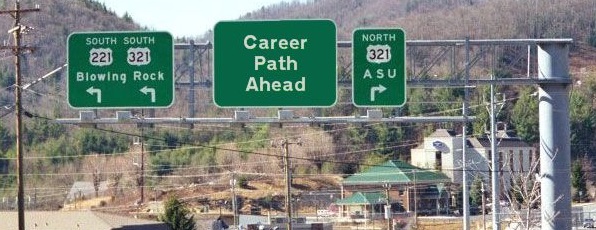Degree-Planning Tools and Learning Advisors
 Only about half of all students who start college graduate with a bachelor’s degree within six years. It doesn't help that completion rate that the path to degrees is less linear than ever. More than a third of students transfer at least once during their college years, according to the National Student Clearinghouse. Of those, nearly half change institutions more than once.
Only about half of all students who start college graduate with a bachelor’s degree within six years. It doesn't help that completion rate that the path to degrees is less linear than ever. More than a third of students transfer at least once during their college years, according to the National Student Clearinghouse. Of those, nearly half change institutions more than once.
EDUCAUSE ELI published a new brief in its "7 Things" series on "Degree-Planning Tools" which discusses how some colleges are allowing students to design their own college experience. Working with advisors and based on their own research into academic, professional, personal and financial aspects of their career goal, they design a curriculum path.
I view this as a kind of adaptive learning on a larger scale, not just within a course.
Technology is playing a role. Tools can help guide students to move based on their strengths, weaknesses, preferences, and circumstances. I'm seeing these tools built into learning management systems. For example, Blackboard has MyEdu, Civitas Learning uses Degree Map, and Ellucian offers MyDegree. A newer player to me is Degree Compass which was acquired by Desire2Learn.
These tools fall under the category of predictive analytics, but I'm a believer that merely acquiring data won't make any positive changes without an intelligent way to apply it. I think this requires software paired with old-fashioned advising so that a student's goal and her academic career align. This is more than choosing the right courses and sequence. It is also about getting complementary experiences in internships, work experiences and professional networking. Those things probably won't come from software.
A more human approach to this is perhaps the old-fashioned idea of having guidance counselors. They may come with new names. I have seen the title "learner advocate" used and most recently the odd "education sherpa" label used. "Sherpa" is Tibetan for "eastern people", and is an ethnic group from Nepal, high in the Himalayas. We know them as guides to explorers of the Himalayan region and expeditions to climb Mount Everest. In some cases, those guides do most of the serious work for inexperienced climbers. I wouldn't want to think that our educational guides would do much of the difficult work for students.
The comparison has also been made to professional patient advocates who help people navigate the often-confusing medical system. This may be particularly important for students who are the first in their families to attend college and don't have natural access to people who can act as resources for academic decisions and guidance towards careers.
Trackbacks
Trackback specific URI for this entryThe author does not allow comments to this entry
Comments
No comments